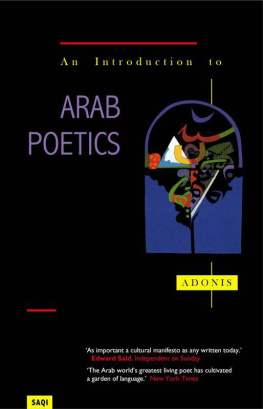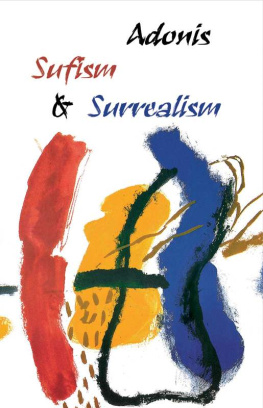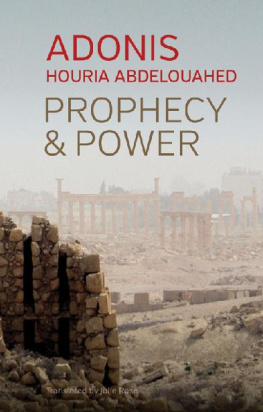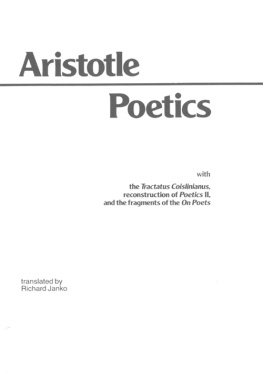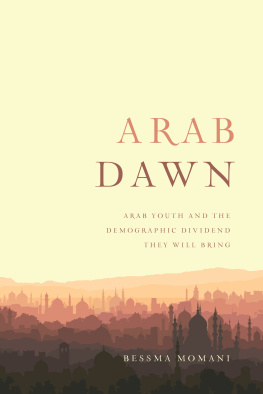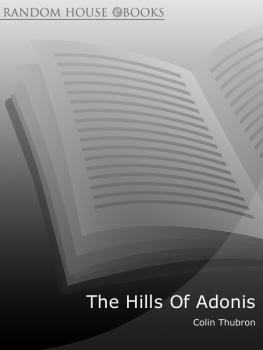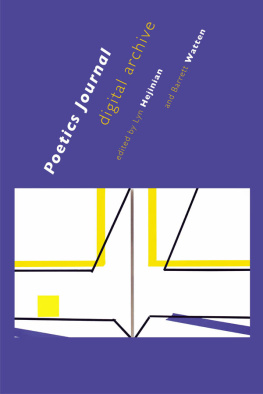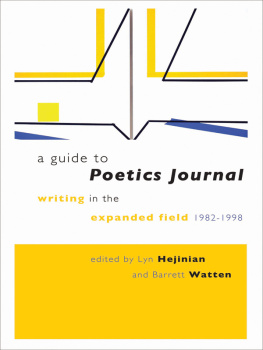Adonis - An Introduction to Arab Poetics
Here you can read online Adonis - An Introduction to Arab Poetics full text of the book (entire story) in english for free. Download pdf and epub, get meaning, cover and reviews about this ebook. year: 2013, publisher: Saqi, genre: Religion. Description of the work, (preface) as well as reviews are available. Best literature library LitArk.com created for fans of good reading and offers a wide selection of genres:
Romance novel
Science fiction
Adventure
Detective
Science
History
Home and family
Prose
Art
Politics
Computer
Non-fiction
Religion
Business
Children
Humor
Choose a favorite category and find really read worthwhile books. Enjoy immersion in the world of imagination, feel the emotions of the characters or learn something new for yourself, make an fascinating discovery.
An Introduction to Arab Poetics: summary, description and annotation
We offer to read an annotation, description, summary or preface (depends on what the author of the book "An Introduction to Arab Poetics" wrote himself). If you haven't found the necessary information about the book — write in the comments, we will try to find it.
Adonis: author's other books
Who wrote An Introduction to Arab Poetics? Find out the surname, the name of the author of the book and a list of all author's works by series.
An Introduction to Arab Poetics — read online for free the complete book (whole text) full work
Below is the text of the book, divided by pages. System saving the place of the last page read, allows you to conveniently read the book "An Introduction to Arab Poetics" online for free, without having to search again every time where you left off. Put a bookmark, and you can go to the page where you finished reading at any time.
Font size:
Interval:
Bookmark:
ARAB POETICS
ARAB POETICS
Adonis
Translated from the Arabic
by Catherine Cobham
Saqi Books
I first became interested in the theoretical aspects of writing poetry in the 1950s, the decade which saw the founding of the periodical Shir (Poetry) in 1957 in Beirut. It soon became obvious to me that the prevailing critical outlook, especially in the universities and other educational establishments of the Arab world, was the product of a functionalist view of poetry. As a result, poetry had a semi-organic relationship with the establishment and its religious and social values. This was an approach which examined poetry by its nature, concerned with the innermost depths of things from the outside, except that paradoxically it was concerned more with the content of the verse than its manner of expression; in addition, this approach imprisoned Arabic poetry within an excessively rigid framework, so that it appeared to have nothing in common with any other poetry.
At the same period I decided to read the actual texts of Arabic poetry without reference to what the critics, ancient or modern, had written about them something which took me about ten years. It became clear to me then that the prevailing interpretations of poetry were completely dependent on the power structure, which in turn was bound up with the religious establishment. In the texts themselves, however, there is scope for a pluralism of interpretation, confirming that Arabic poetry is not the monolith this dominant critical view suggests, but is pluralistic, sometimes to the point of self-contradiction. It is hard to imagine a more superficial, trivializing view of poetry, and one less conducive to an understanding of the poetic experience, than that which has long prevailed in the Arab world.
My reading also made it clear to me that, apart from the disparities resulting from linguistic and social peculiarities or from chronological differences, the artistic and cultural problems posed by writing poetry in Arabic are the same as those encountered in other societies.
Eventually I felt compelled to try to present Arabic poetry from another perspective, one which I have set out at length in the introductions to the three parts of Dwn al-Shir al-Arab (Anthology of Arabic Poetry), and also in Muqaddima lil-Shir al-Arab (An Introduction to Arabic Poetry).
I had become still more certain of the view of Arabic poetry which I was attempting to formulate when, at the beginning of the 1970s, I embarked upon a study of Arab culture as a whole which I called al-Thbit wal-Mutaawwil: bath fil-ittib wal-ibd indal-arab (The Fixed and the Changing: A study of conformity and originality in Arab culture). This was published in three parts (with a fourth part in preparation), with the following subsidiary titles: al-Ul (The Roots), Tal al-Ul (Establishing the Roots) and admat al-adtha (The Shock of Modernity).
The lectures I delivered at the Collge de France in 1984 (and which are published in the present volume) are thus the product of over a quarter of a centurys research into Arabic poetry and Arab culture.
I hope they may serve as a preface to the writing of a new history of Arabic poetry based on the language of poetry itself in its relationship with things, and in its movement and depth of perspective. At the same time, I hope that they will open another window for English poetry, on to the language and particular creative vision of Arabic poetry.
Paris, January 1990
I use the term orality here in three senses: first, to mean that Arabic poetry at the time of the Jhiliyya (the pre-Islamic era in Arabia) was rooted in the oral and developed within an audio-vocal culture; second, to indicate that this poetry did not come down to us in written form but was anthologized in the memory and preserved through oral transmission; and finally, to investigate the characteristics of this orality in poetry and assess the extent of its influence on written Arabic poetry in succeeding periods, in particular on its aesthetics.
Pre-Islamic poetry was born as song; it developed as something heard and not read, sung and not written. The voice in this poetry was the breath of life body music. It was both speech and something which went beyond speech. It conveyed speech and also that which written speech in particular is incapable of conveying. This is an indication of the richness and complexity of the relationship between the voice and speech, and between the poet and his voice; it is the relationship between the individuality of the poet and the physical actuality of the voice, both of which are hard to define. When we hear speech in the form of a song, we do not hear the individual words but the being uttering them: we hear what goes beyond the body towards the expanses of the soul. The signifier is no longer an isolated word, but a word bound to a voice, a music-word, a song-word. It is not merely an indication of a certain meaning, but an energy replete with signs, the self transformed into speech-song, life in the form of language. From this comes the profound congruence between the vocal and acoustic values of speech and the emotional and affective content of pre-Islamic poetry.
To start with, orality implies listening, for the voice appeals to the ear first of all. Orality therefore had its own art of poetic expression which lay not in what was said, but in how it was said. This was particularly important because, on the whole, the pre-Islamic poet spoke of what his listeners already knew: their customs and traditions, wars and heroic exploits, victories and defeats. Thus the poets individuality manifested itself in his manner of expression: the more inventive this was, the more he was admired for his originality. It was his duty to give to the collective, to the everyday moral and ethical existence of the group, a unique image of itself in a unique poetic language. In doing this, the poet was not expressing himself as much as he was expressing the group, or rather he expressed himself only through expressing the group. He was their singing witness, and therefore we should not be surprised at this paradox in pre-Islamic poetry: unity of content and diversity of expression.
Let us say that recitation and memory did the work of a book in the dissemination and preservation of pre-Islamic poetry.
If we go back to the root of the word song ( nashd ) in Arabic, we see that it means the voice, the raising of the voice and the recited poetry itself. Two basic principles of pre-Islamic poetry were that it should be recited aloud and that the poet himself should recite his own poem: as al-Ji (775868) says, a poem sounds better from the mouth of its composer. The Arabs of the pre-Islamic period considered the recitation of poetry as a talent in itself, distinct from that of composition; obviously it was of considerable importance in drawing an audience and impressing them enough to hold them there especially so since, at the time, listening was essential to the comprehension of words and to musical ecstasy ( arab ). For, in the words of Ibn Khaldn (13321406), Hearing is father to the linguistic faculties. From this perspective, the better the recitation, the more profound the effect of the poetry.
Recitation of poetry is a form of song. The Arab literary tradition is full of signs confirming this. The poets who recite their work are often compared to singing birds and their verses to birdsong. Song is the leading-rein of poetry, according to a well-known expression, while asan Ibn Thbit (d. 674), the poet of the Prophet, has an equally famous verse:
Font size:
Interval:
Bookmark:
Similar books «An Introduction to Arab Poetics»
Look at similar books to An Introduction to Arab Poetics. We have selected literature similar in name and meaning in the hope of providing readers with more options to find new, interesting, not yet read works.
Discussion, reviews of the book An Introduction to Arab Poetics and just readers' own opinions. Leave your comments, write what you think about the work, its meaning or the main characters. Specify what exactly you liked and what you didn't like, and why you think so.

